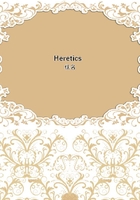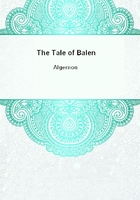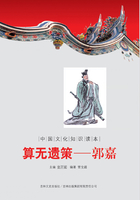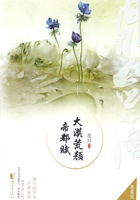After all, the great fact stands, that the only lasting poet of that generation was a Puritan; one who, if he did not write dramas in sport, at least acted dramas in earnest. For drama means, etymologically, action and doing: and of the drama there are, and always will be, two kinds: one the representative, the other the actual; and for a world wherein there is no superabundance of good deeds, the latter will be always the better kind. It is good to represent heroical action in verse, and on the stage: it is good to 'purify,' as old Aristotle has it, 'the affections by pity and terror.' There is an ideal tragedy, and an ideal comedy also, which one can imagine as an integral part of the highest Christian civilisation. But when 'Christian' tragedy sinks below the standard of heathen Greek tragedy; when, instead of setting forth heroical deeds, it teaches the audience new possibilities of crime, and new excuses for those crimes; when, instead of purifying the affections by pity and terror, it confounds the moral sense by exciting pity and terror merely for the sake of excitement, careless whether they be well or ill directed: then it is of the devil, and the sooner it returns to its father the better for mankind. When, again, comedy, instead of stirring a divine scorn of baseness, or even a kindly and indulgent smile at the weaknesses and oddities of humanity, learns to make a mock of sin,--to find excuses for the popular frailties which it pretends to expose,--then it also is of the devil, and to the devil let it go; while honest and earnest men, who have no such exceeding love of 'Art' that they must needs have bad art rather than none at all, do the duty which lies nearest them amid clean whitewash and honest prose. The whole theory of 'Art, its dignity and vocation,' seems to us at times questionable, if coarse facts are to be allowed to weigh (as we suppose they are) against delicate theories. If we are to judge by the example of Italy, the country which has been most of all devoted to the practice of 'Art,' then a nation is not necessarily free, strong, moral, or happy because it can 'represent' facts, or can understand how other people have represented them. We do not hesitate to go farther, and to say that the now past weakness of Germany was to be traced in a great degree to that pernicious habit of mind which made her educated men fancy it enough to represent noble thoughts and feelings, or to analyse the representations of them: while they did not bestir themselves, or dream that there was a moral need for bestirring themselves, toward putting these thoughts and feelings into practice. Goethe herein was indeed the type of a very large class of Germans: God grant that no generation may ever see such a type common in England; and that our race, remembering ever that the golden age of the English drama was one of private immorality, public hypocrisy, ecclesiastical pedantry, and regal tyranny, and ended in the temporary downfall of Church and Crown, may be more ready to do fine things than to write fine books; and act in their lives, as those old Puritans did, a drama which their descendants may be glad to put on paper for them long after they are dead.
For surely these Puritans were dramatic enough, poetic enough, picturesque enough. We do not speak of such fanatics as Balfour of Burley, or any other extravagant person whom it may have suited Walter Scott to take as a typical personage. We speak of the average Puritan nobleman, gentleman, merchant, or farmer; and hold him to have been a picturesque and poetical man,--a man of higher imagination and deeper feeling than the average of court poets; and a man of sound taste also. What is to be said for his opinions about the stage has been seen already: but it seems to have escaped most persons' notice, that either all England is grown very foolish, or the Puritan opinions on several matters have been justified by time.
On the matter of the stage, the world has certainly come over to their way of thinking. Few highly educated men now think it worth while to go to see any play, and that exactly for the same reasons as the Puritans put forward; and still fewer highly educated men think it worth while to write plays: finding that since the grosser excitements of the imagination have become forbidden themes, there is really very little to write about.
But in the matter of dress and of manners, the Puritan triumph has been complete. Even their worst enemies have come over to their side, and the 'whirligig of time has brought about its revenge.'
Most of their canons of taste have become those of all England. High Churchmen, who still call them Roundheads and Cropped-ears, go about rounder-headed and closer cropt than they ever went. They held it more rational to cut the hair to a comfortable length than to wear effeminate curls down the back. We cut ours much shorter than they ever did. They held (with the Spaniards, then the finest gentlemen in the world) that sad, i.e. dark colours, above all black, were the fittest for all stately and earnest gentlemen. We all, from the Tractarian to the Anythingarian, are exactly of the same opinion.













